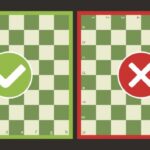The age-old question: “How long does it take to learn to code?” often elicits a daunting answer: forever. Software development demands continuous learning. However, a more practical question is: “How long until I land my first coding job?”
While answerable, it’s akin to asking, “How long does it take to climb a mountain?” Factors like the path, the climber’s skill, and the weather all play a role. Let’s examine six aspiring programmers and their unique journeys to estimate timelines. These are fictionalized but based on real-world experiences.
Different Paths to a Coding Career: Timelines to First Job
1. The Dedicated University Student
Christian, 18, enrolls in a Computer Science degree program. He excels academically but lacks personal coding projects beyond coursework. His portfolio consists solely of university assignments. He graduates at 21 and begins his job search.
Time to find a job: 4-5 years. This route, while providing a strong foundation, can be inefficient. Academic learning often leans theoretical. While Christian’s degree holds weight, his limited portfolio might hinder him in a competitive job market. He’ll likely find a job eventually, but it might take longer.
2. The Proactive University Student
Annemarie, also a Computer Science student, balances academics with practical experience. She builds websites for local businesses, networks actively, and seeks internships early on.
Time to find a job: 2-3 years. Annemarie’s proactive approach sets her apart. Real-world projects and networking significantly boost her employability. She might secure a job before graduation or shortly after.
3. The Steady Self-Learner
Sophia, with a full-time job, learns to code gradually through free online courses, dedicating 10-15 hours weekly. She occasionally consults a mentor.
Time to find a job: 1-1.5 years. Sophia’s paced learning is commendable, but her lack of formal credentials could be a disadvantage. Her mentorship, however, ensures efficient learning and guidance. Gaining practical experience through personal projects will be crucial for her job search.
4. The Immersed Self-Learner
Lara, unemployed, dedicates 40-50 hours weekly to self-learning using free resources. She actively engages with the coding community online, documents her progress, and builds a portfolio.
Time to find a job: 6-10 months. Lara’s intensive approach and community engagement accelerate her learning. Networking exposes her to valuable tools and frameworks. Her strong portfolio compensates for the lack of formal certification.
5. The Bootcamp Graduate
Mehmet, seeking a career change, enrolls in a coding bootcamp. He benefits from structured learning, collaborative projects, career coaching, and a certificate upon completion.
Time to find a job: 3-4 months. Bootcamps offer an accelerated, albeit intense, path to employment. Mehmet’s bootcamp provides comprehensive training and career support, maximizing his chances of a quick job placement.
6. The Specialized Self-Learner
Marcel, with a strong mathematical background, dedicates himself to mastering PHP during his sabbatical.
Time to find a job: 2-3 months. Marcel’s analytical skills and focused approach enable rapid progress. While specializing in a single language limits his versatility, the high demand for PHP might lead to quick employment.
How Long Does it Take to Learn to Code? It Depends.
The journey to a coding career is highly individualized. There’s no single answer to “How Long To Learn To Code And Get A Job.” The most effective path depends on your learning style, resources, commitment, and career goals. Choose the approach that best suits you, and remember that confidence in applying your skills matters more than the time it takes to acquire them. Focus on building a solid foundation and showcasing your abilities through practical projects.

